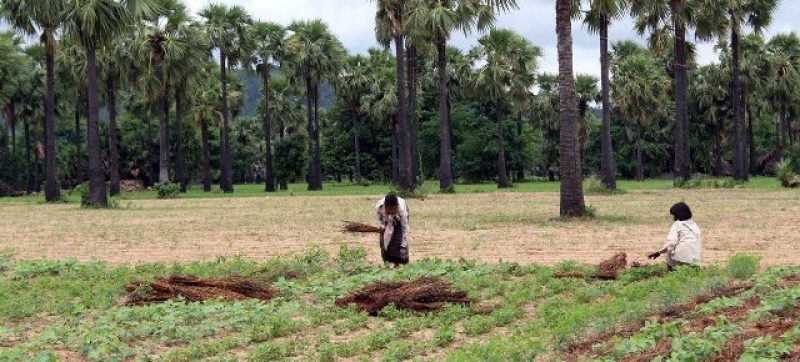- Govt welcomes Tarique Rahman’s return, assures full coop |
- BNP strikes polls deal with 7 more partners, reserves 8 seats |
- BRTA tops corruption list among public service offices: BBS |
- Toll-free entry for vehicles via airport area expressway Thursday |
- ‘Very unhealthy’ air quality persists in Dhaka |
Diversified Yields Strong Benefits for Farmers, Biodiversity

Farming remains the primary source of income for rural families in Myanmar. FAO-Soe Moe Naing
Drawing from data from 24 studies across 2,655 farms in 11 countries, a study has found that implementing livestock diversification or soil conservation tended to create beneficial social and environmental outcomes, especially for biodiversity (Item 1). Applying multiple diversification strategies created more positive outcomes than individual management strategies alone. To realize these benefits, well-designed policies are needed to incentivize the adoption of multiple diversification strategies in unison.
The study looked at multiple different contexts, including mixed maize in Malawi and cocoa agroforestry in Ghana (Item 2). Smallholder farmers from Malawi integrated livestock, legumes and fruit trees into their maize production. In Ghana, smallholders integrated shade trees when producing cocoa.
Starting to diversify might be costly at first and need labour. This might prevent farmers from trying diversification strategies unless they get financial support. Current policies have also tended to lock in simplified, conventional farming rather than enable transitions to diversified farming.
Important lessons can be learned from areas where communities have found ways past the barriers. In Malawi and Ghana, farmers’ collective actions through social networks have made it easier to get the resources needed for a transition to diversified agriculture. Specifically, farmer networks have allowed for farmer-to-farmer experimentation, teaching and sharing. The result is that farmers prefer a diversified approach, including livestock integration, use of compost and other soil health innovations, trees on farms, and the cultivation of multiple crops.
DOI: 10.1126/science.adj1914
Joint environmental and social benefits from diversified agriculture | Science
https://theconversation.com/farming-with-a-mixture-of-crops-animals-and-trees-is-better-for-the-environment-and-for-people-evidence-from-ghana-and-malawi-230135

